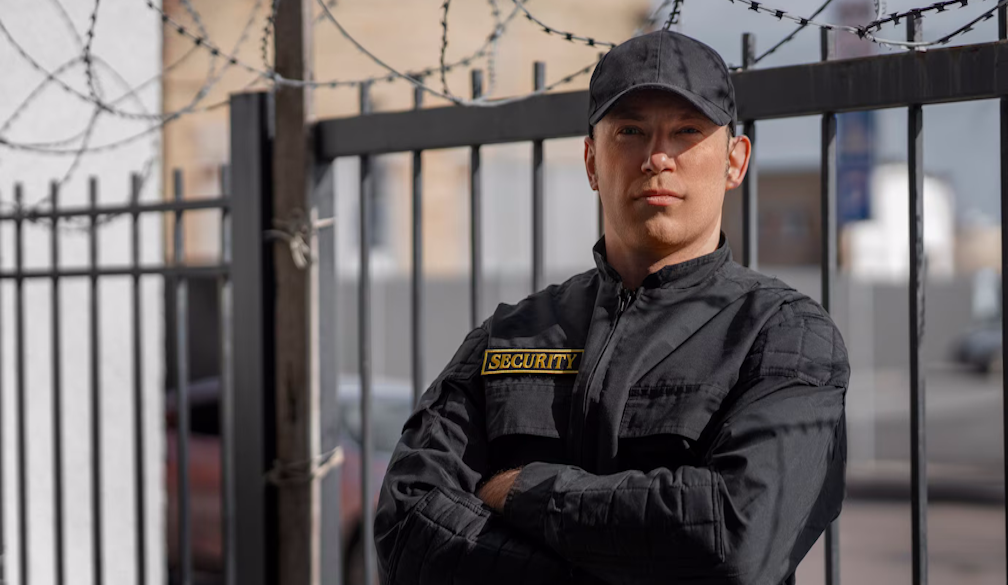Fortify Your Fortress: A Comprehensive Guide to Security Fencing

In an increasingly uncertain world, securing your property, be it a residential home, a commercial establishment, or an industrial site, is paramount. One of the most effective and visible deterrents against unauthorized access and potential threats is robust security fencing. It's more than just a boundary; it's a statement of protection, a physical manifestation of your commitment to safety.
This blog delves deep into the world of security fencing, exploring its various types, benefits, and considerations to help you make informed decisions for your specific needs.
Why Invest in Security Fencing?
Beyond the obvious deterrent factor, security fencing offers a multitude of advantages:
- Enhanced Deterrence: A visible, sturdy fence acts as a psychological barrier, discouraging potential intruders from even attempting to breach your property.
- Property Boundary Definition: Clearly defined boundaries prevent disputes and ensure that your property rights are respected.
- Increased Privacy: Depending on the type of fencing, it can provide a significant degree of privacy, shielding your property from prying eyes.
- Safety and Protection: Security fencing can protect children and pets from wandering off and prevent accidents by restricting access to hazardous areas.
- Asset Protection: For businesses and industrial sites, it safeguards valuable equipment, inventory, and sensitive data.
- Aesthetics and Value: Modern security fencing options are available in various styles and materials, enhancing the aesthetic appeal of your property and potentially increasing its value.
Types of Security Fencing: Choosing the Right Fit
The ideal security fence depends on your specific needs, budget, and aesthetic preferences. Here's a breakdown of common types:
- Chain Link Fencing:A cost-effective and versatile option, ideal for large areas.
- Offers good visibility, making it easy to monitor the perimeter.
- Can be enhanced with barbed wire or razor wire for increased security.
- Commonly used for industrial sites, sports fields, and residential backyards.
- Wrought Iron Fencing:Known for its strength, durability, and elegant appearance.
- Provides a high level of security and enhances the aesthetic appeal of upscale properties.
- Requires regular maintenance to prevent rust.
- Often used for residential properties, commercial buildings, and historical sites.
- Steel Palisade Fencing:A highly secure option with vertical steel pales and a robust construction.
- Offers excellent resistance to climbing and forced entry.
- Commonly used for high-security applications, such as industrial sites, prisons, and critical infrastructure.
- Metal Mesh Fencing:Variations of metal mesh fencing offer different levels of security.
- Welded wire mesh is very strong and provides excellent security.
- Expanded metal mesh offers a good visual deterrent.
- These can be used in many applications, from residential to high security.
- Electric Fencing:A powerful deterrent that delivers a non-lethal electric shock to intruders.
- Often used in conjunction with other types of fencing for enhanced security.
- Requires careful installation and maintenance to ensure safety.
- Commonly used for agricultural properties, high-security sites, and animal control.
- PVC/Vinyl Fencing:A low maintenance option that is resistant to rot and insects.
- Offers a range of styles and colors to match your property's aesthetic.
- Provides a good level of privacy and security.
- Popular for residential properties.
Key Considerations for Security Fencing Installation:
- Height and Strength: The height and strength of the fence should be appropriate for the level of security required.
- Access Control: Consider incorporating access control systems, such as gates, locks, and electronic entry systems.
- Visibility: Balance the need for security with the need for visibility. High-security fences may limit visibility, while chain link fences offer good visibility.
- Terrain and Soil Conditions: The terrain and soil conditions will affect the installation process and the type of fencing that is suitable.
- Local Regulations and Permits: Check local regulations and obtain any necessary permits before installing a security fence.
- Professional Installation: Hiring a professional fencing contractor ensures that the fence is installed correctly and securely.
- Maintenance: Regularly inspect and maintain your security fence to ensure its longevity and effectiveness.
Enhancing Security Fencing:
- Security Cameras: Integrate security cameras to monitor the perimeter and record any suspicious activity.
- Lighting: Install adequate lighting to deter intruders and improve visibility at night.
- Alarm Systems: Connect the fence to an alarm system that triggers an alert when the fence is breached.
- Barbed Wire or Razor Wire: Add barbed wire or razor wire to the top of the fence for increased security.
- Anti-Climb Measures: Install anti-climb measures, such as spikes or rollers, to prevent intruders from climbing over the fence.
Investing in peace of mind:
Security fencing is a vital investment in the safety and security of your property. By carefully considering your needs and choosing the right type of fencing, you can create a robust barrier that deters intruders and protects your assets. Remember to prioritize professional installation and regular maintenance to ensure the long-term effectiveness of your security fencing system. A well-constructed and maintained security fence serves not only as a physical barrier but as a powerful psychological deterrent, providing you with peace of mind and safeguarding your valuable assets.


















